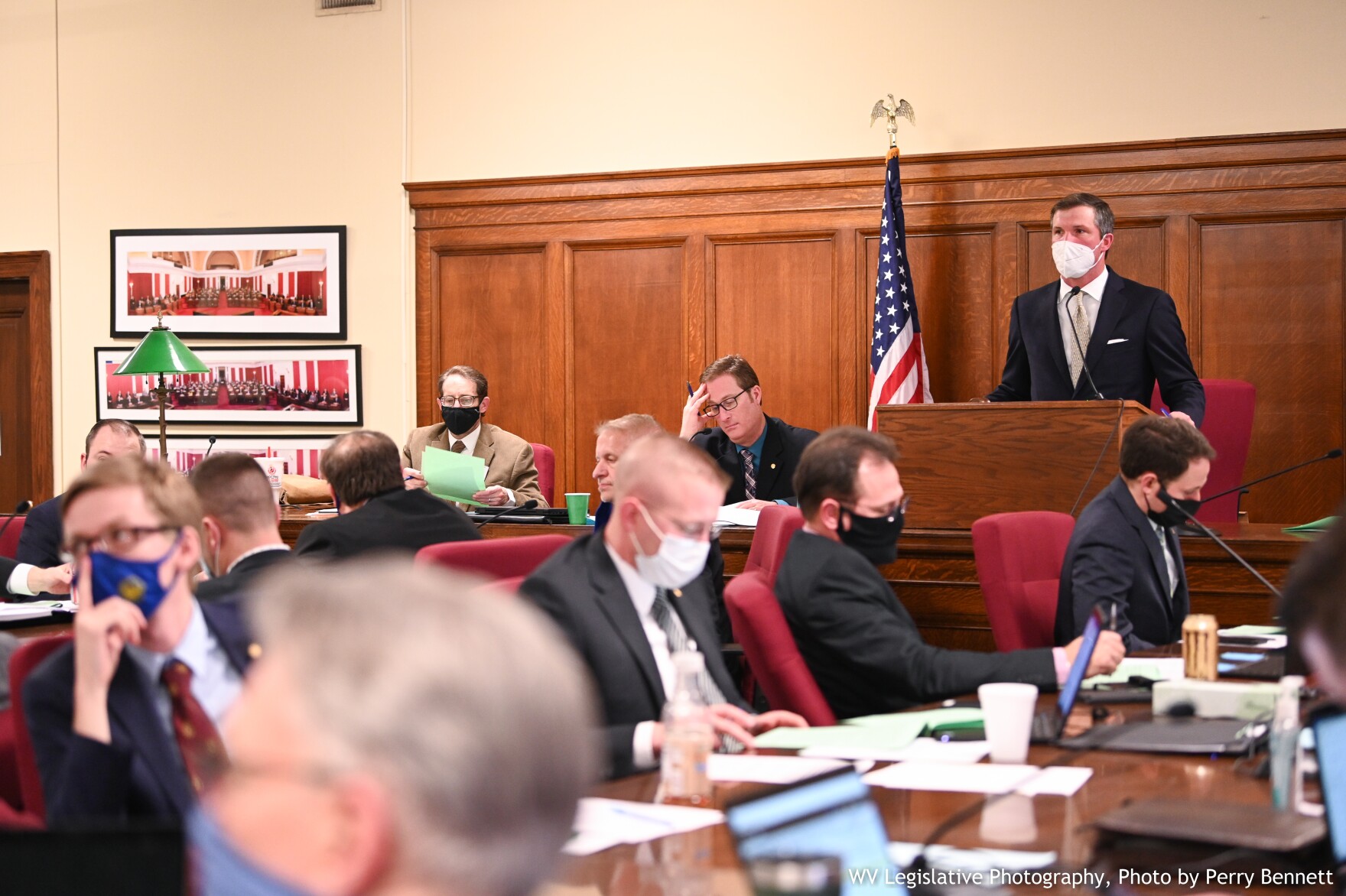Legislation in the House of Delegates would update water quality standards by adopting a quarter of recommended rules for pollutants that the U.S. Environmental Protection Agency created in 2015.
Representatives for companies regulated by these rules, like the West Virginia Manufacturers Association, say House Bill 2389 is “scientifically defensible” and reasonable.
Meanwhile, environmental advocates argue that the bill is an incomplete effort, incorporating several new rules that would weaken existing water quality standards and ignoring dozens of other EPA recommendations to increase regulation.
“We’re really shifting the burden onto our public water systems to treat for a higher levels of toxins and carcinogens in our water,” said Angie Rosser, executive director of the West Virginia Rivers Coalition. “That cost, eventually, for that treatment, gets passed on to customers. So we are paying the price for the cost of relaxing standards that benefit polluting industries.”
Rosser was one of several advocates who spoke to the House Judiciary Committee Monday, during the first virtual public hearing of the 2021 legislative session.
The committee heard from watershed organizations, environmental lobbyists, religious leaders and tourism businesses Monday morning, who participated in the hearing. They argued that House Bill 2389 would endanger public health, putting thousands of West Virginia residents at risk for more harmful water pollutants.
“In a state blessed with beautiful rivers and plentiful fish, where we are encouraging tourists to come and enjoy our waters, shouldn’t we try to make our waters cleaner and safer so that residents and tourists can safely eat the fish out of our rivers?” asked Autumn Crowe, treasurer for the Greenbrier River Watershed Association.
Speakers, many of whom have ties to the West Virginia Rivers Coalition, also said the bill could discourage people from visiting and living in the state.
“As a guide and as a white water rafting company owner, I know what clean water means to this state,” said Paul Breuer, who created the Mountain River Tours for white water rafting, one of the four founding groups behind Adventures on the Gorge. “Tourism is growing. This beautiful state can handle a lot more tourists, if they know the water is clean.”
The bill addresses 24 out of 94 recommendations for water pollutants the EPA made under the Obama administration in 2015.
The West Virginia Department of Environmental Protection approached the West Virginia Legislature in 2018, with requests to adopt at one point more than 50 of the EPA’s suggestions.
Upon objections from representatives for groups regulated by this bill, like manufacturers and coal companies, the Legislature passed Senate Bill 163, giving the DEP until April 2020 to come back with new recommendations.
Jason Bostic, vice president of the West Virginia Coal Association, defended the process that led to the legislation. He described a working group of lawmakers and industry representatives, all of whom he said studied the original recommendations from the EPA before deciding what to include in new bill.
“I think it’s also critical that West Virginia consider the appropriateness of any proposal from the federal Environmental Protection Agency before adopting federal standards wholesale, as some would advocate,” Bostic said.
The House Judiciary committee is the first to hold a virtual public hearing this year. Not only do temporary pandemic-related House rules allow for online hearings, but they also allow committee chairs to deny requests for hearings, based on resources, staffing and timeliness.
Normally, committee chairs are required by House rules to offer public hearings on legislation, as they’re requested.
There were at least 30 participants Monday from all over the state, all of whom delivered two-minutes statements. At one point, legislative staff reported more than 100 viewers of the event on YouTube.
Emily Allen is a Report for America corps member.




















